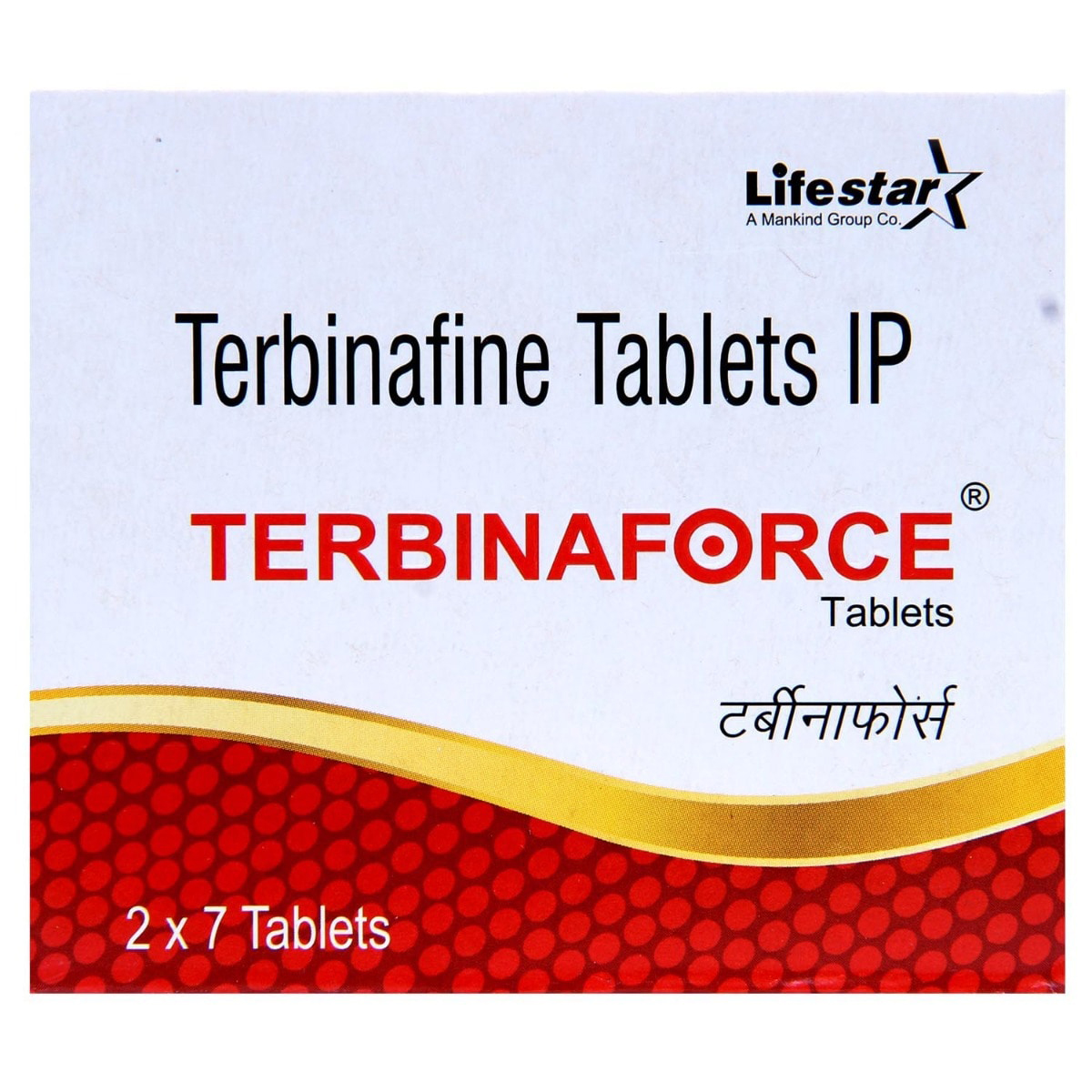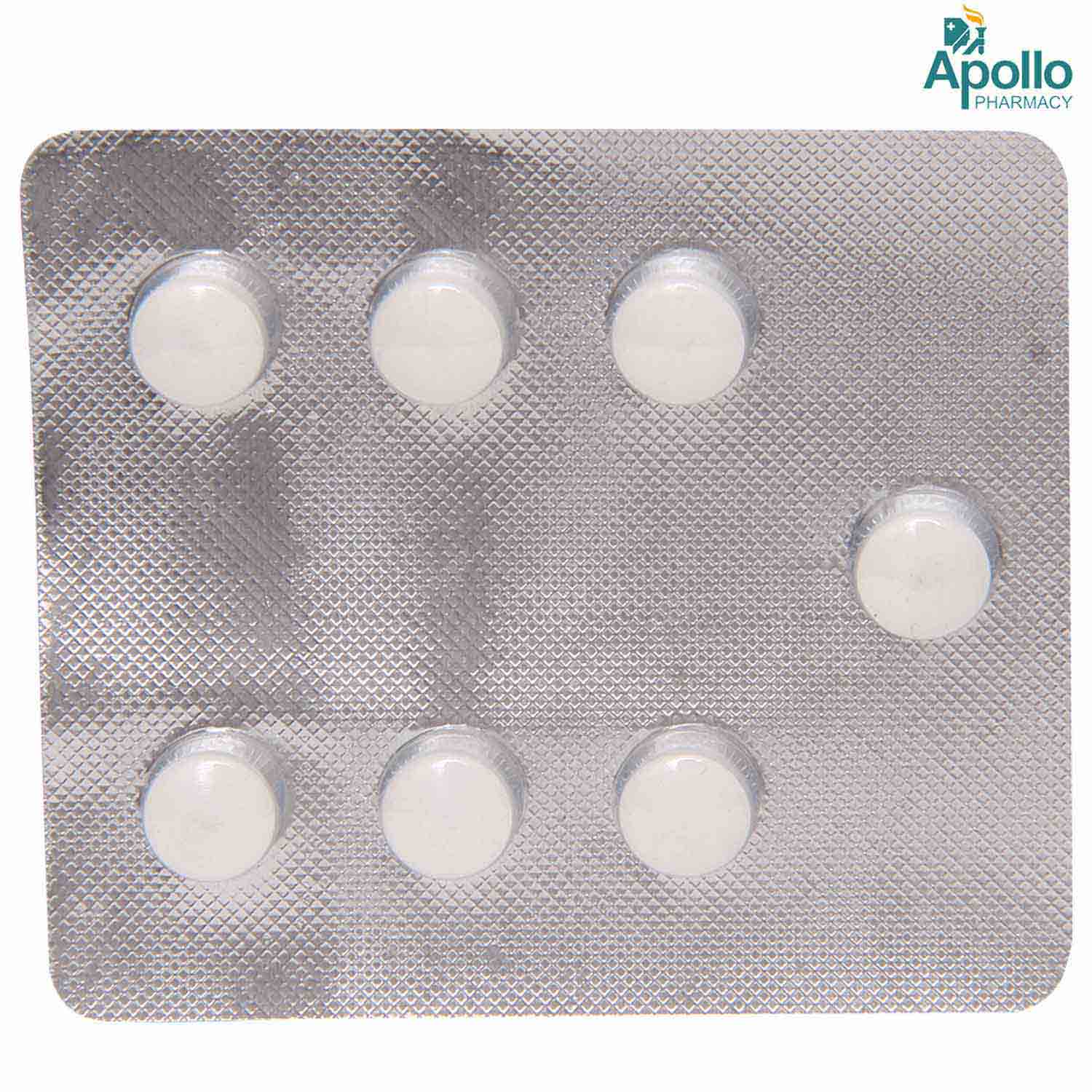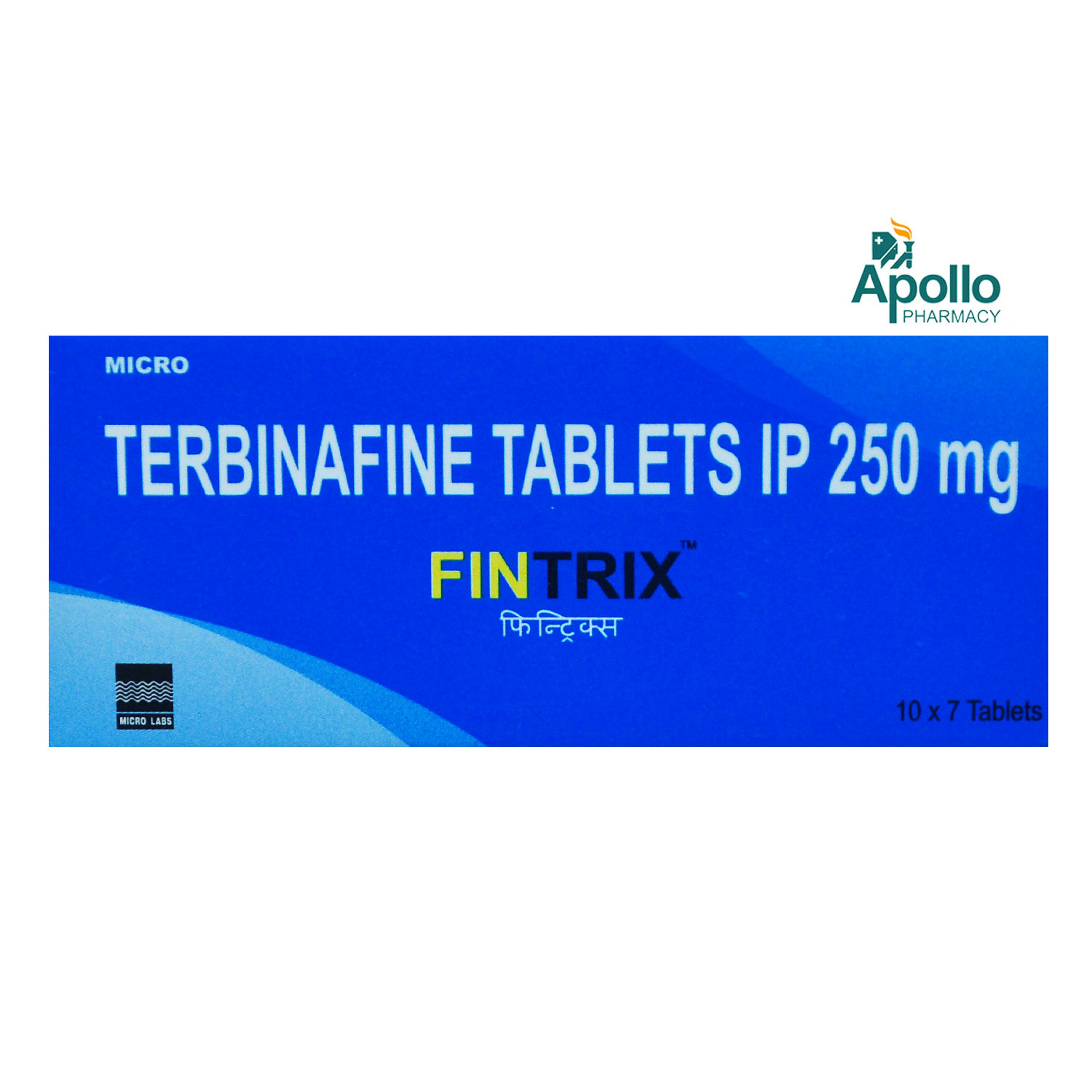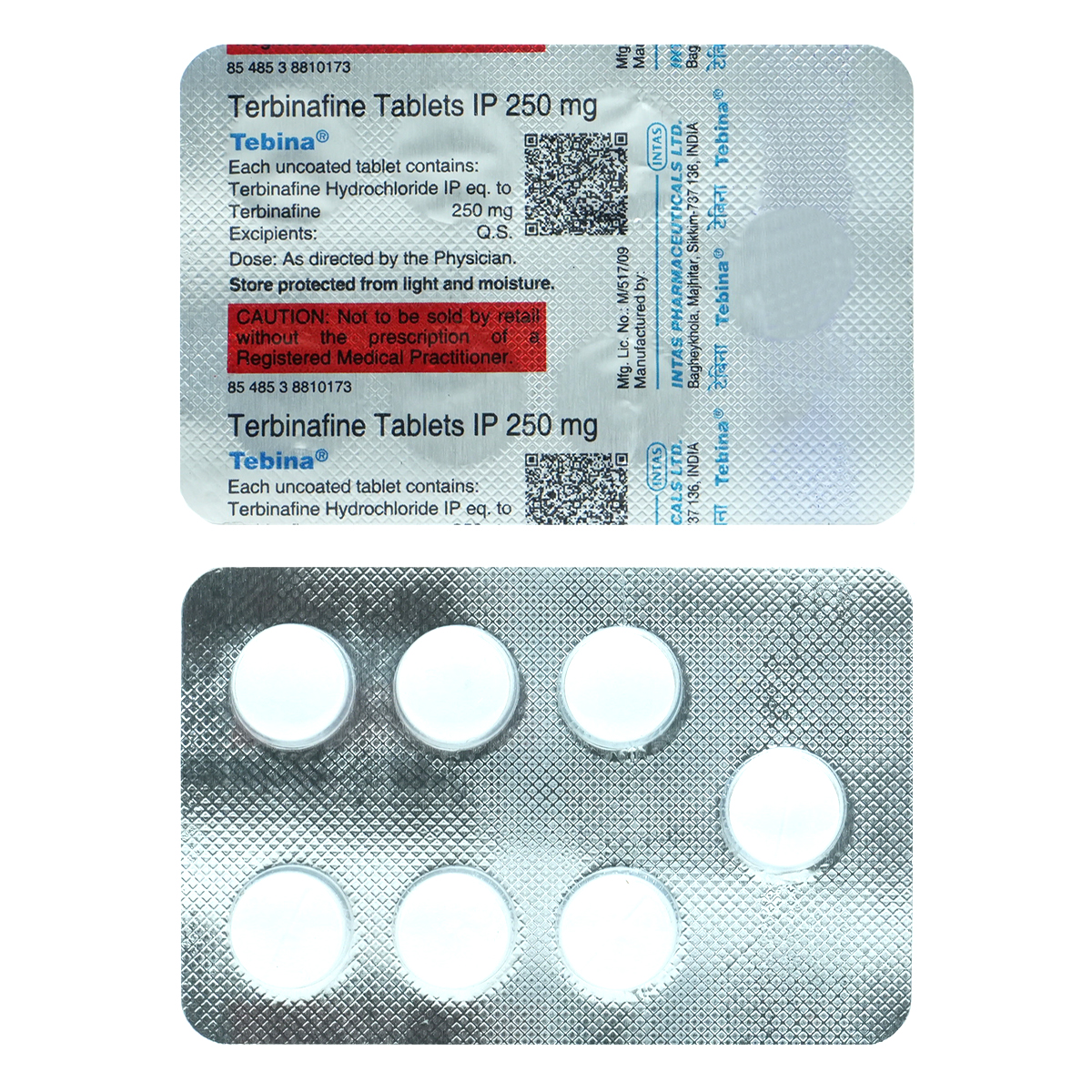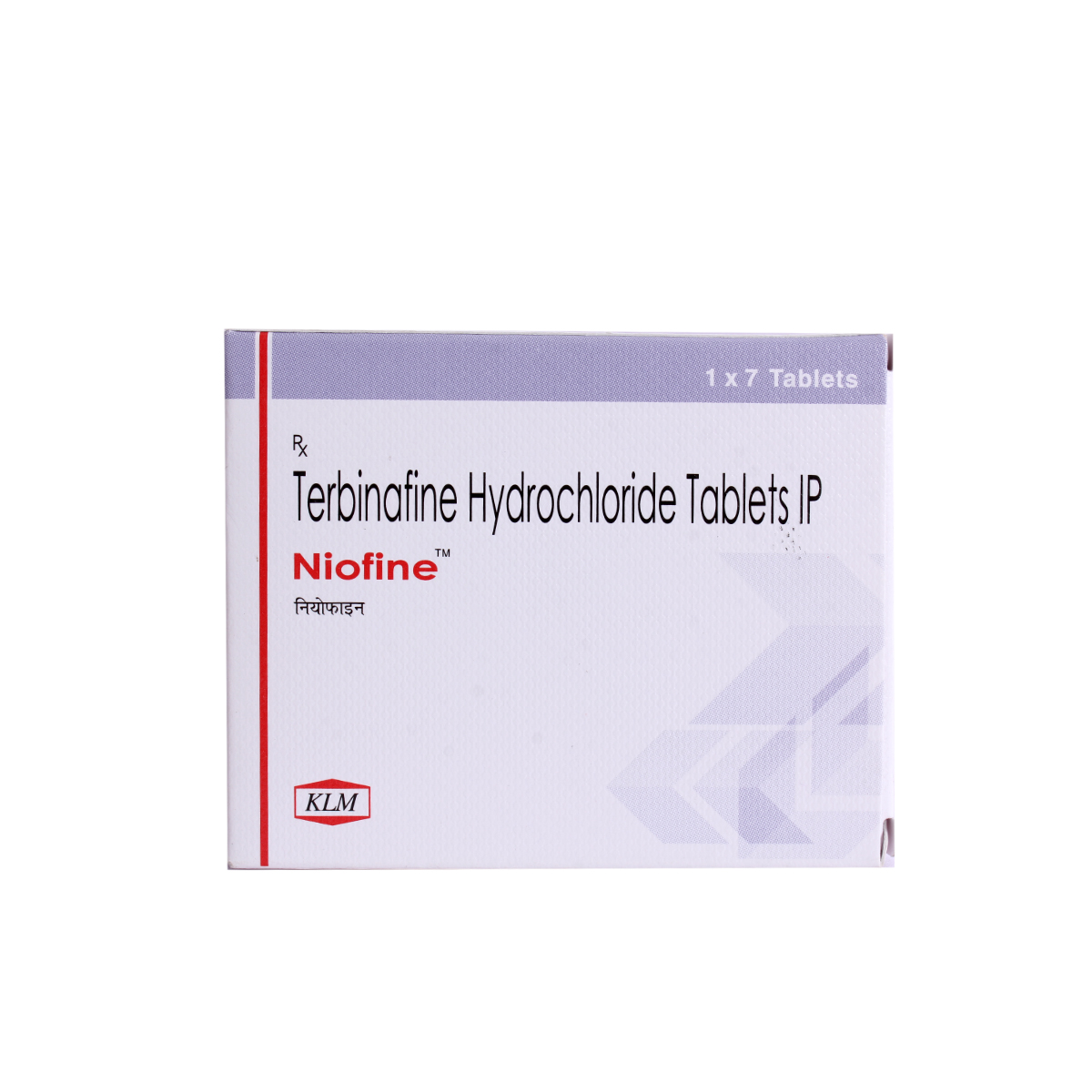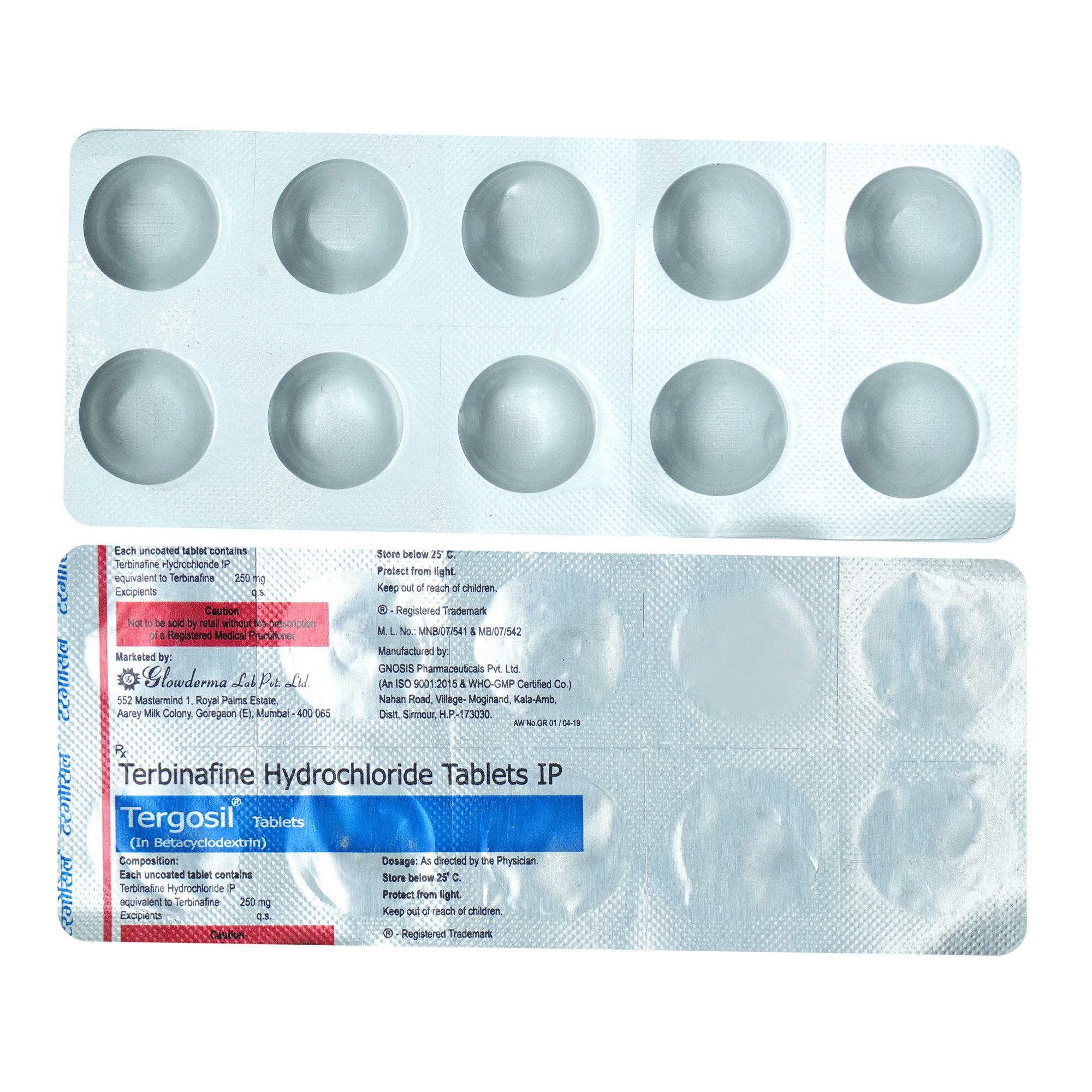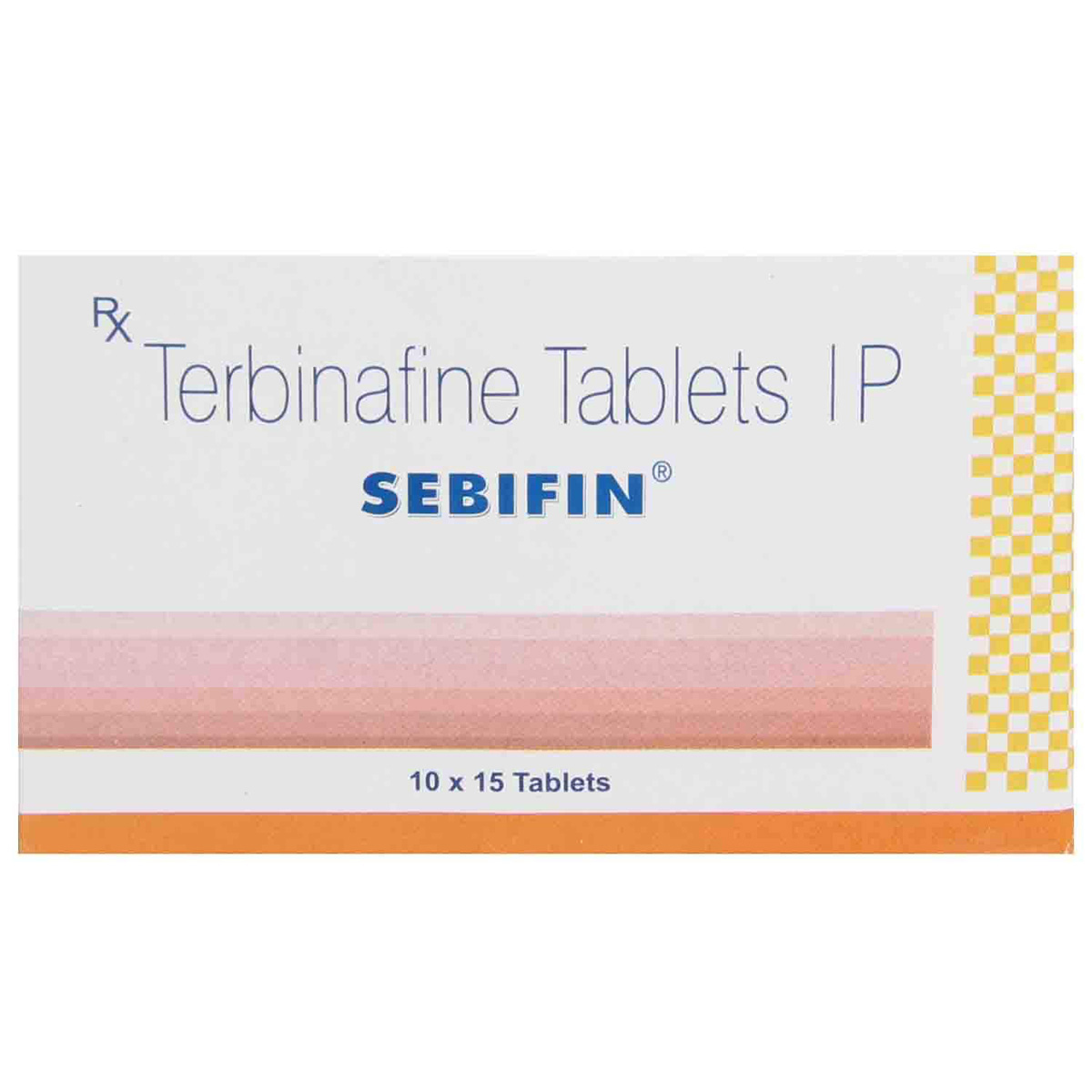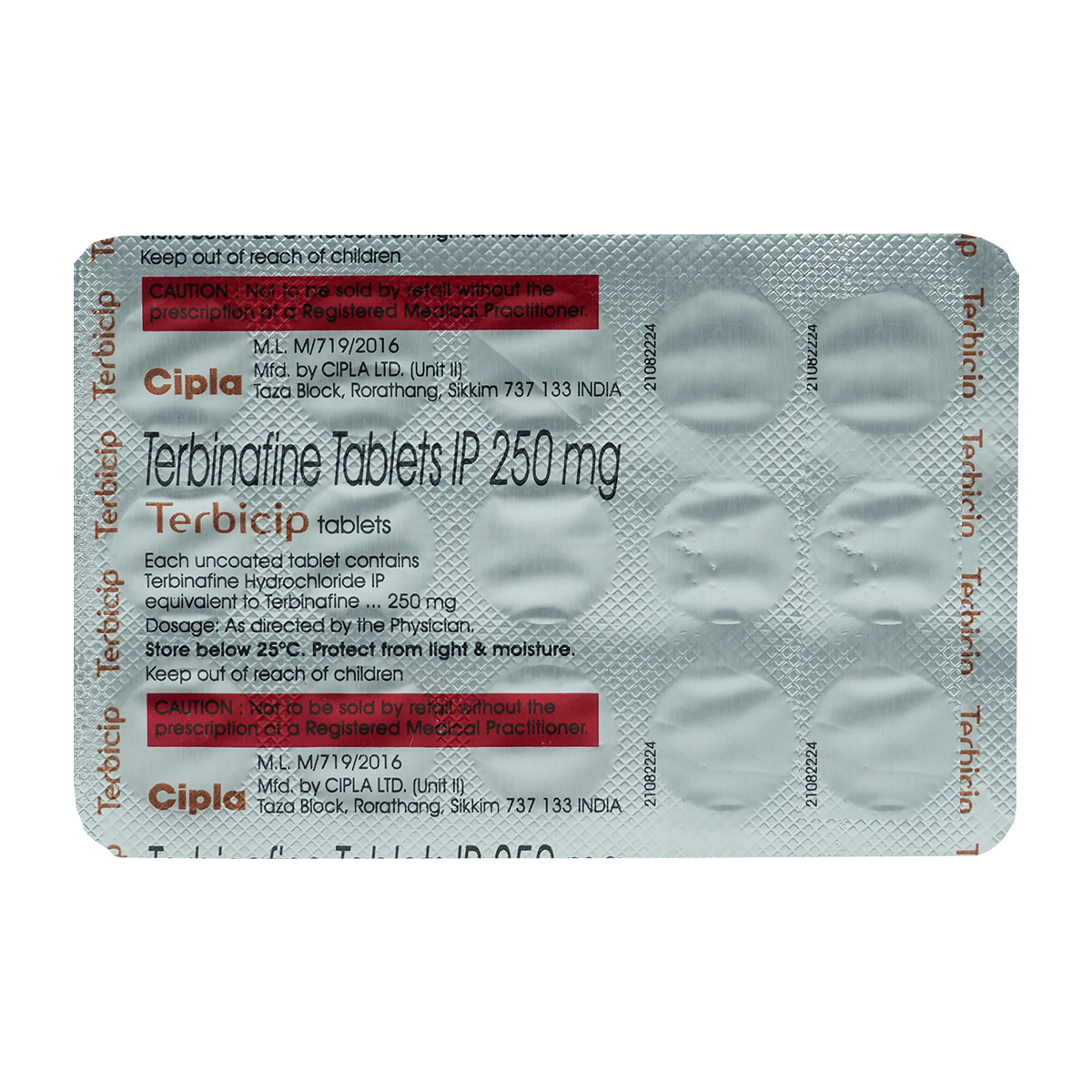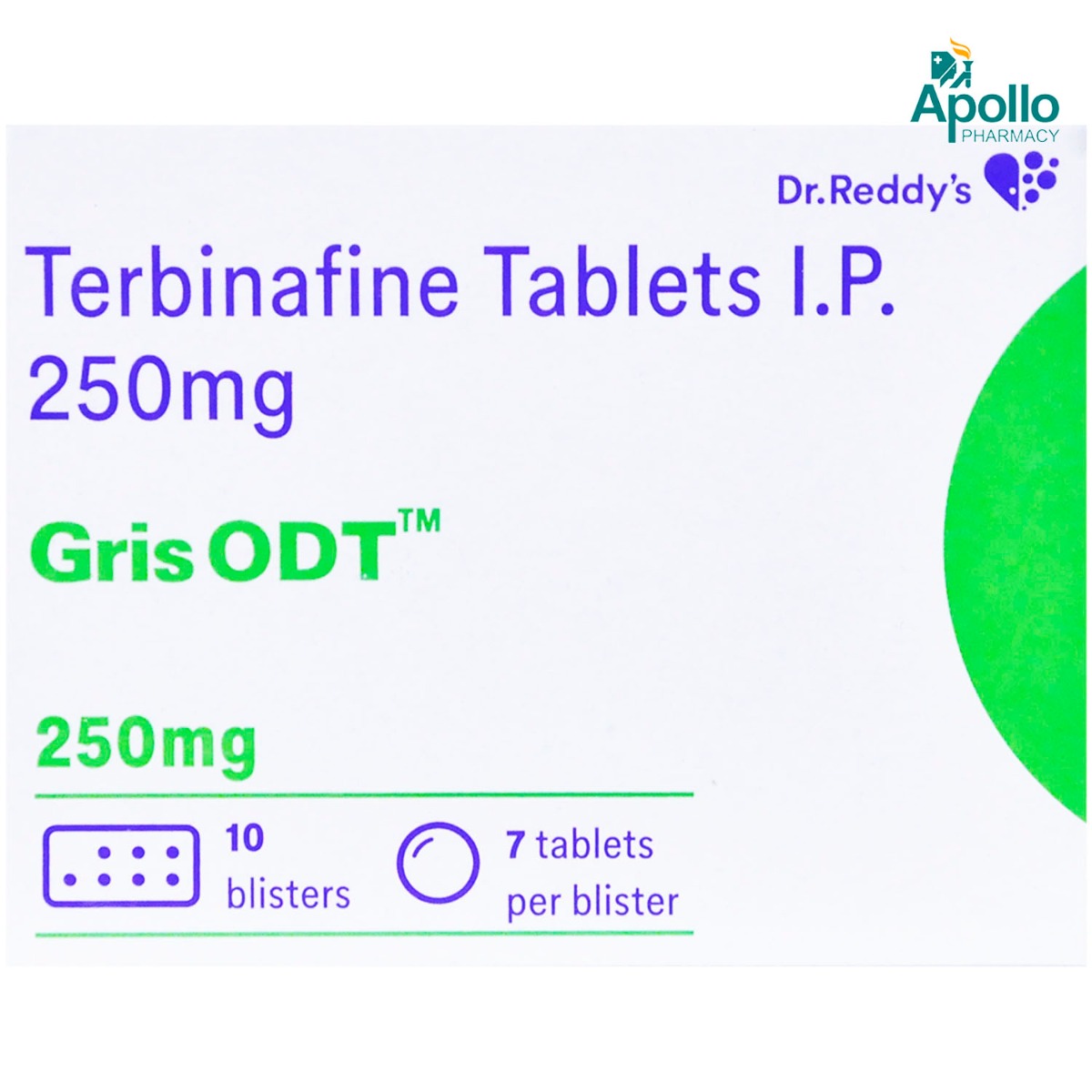Terbiska-250 Tablet

MRP ₹164.5
(Inclusive of all Taxes)
₹24.7 Cashback (15%)
know your delivery time
Provide Delivery Location
Composition :
Manufacturer/Marketer :
Consume Type :
Expires on or after :
Return Policy :

Secure Payment

Trusted by 8 Crore Indians

Genuine Products
Therapeutic Class
Country of origin
Manufacturer/Marketer address
Author Details
We provide you with authentic, trustworthy and relevant information
FAQs
Terbiska-250 Tablet works by damaging the fungal cell membranes that are essential for their survival as they prevent the entry of unwanted substances into the cells and stop the leakage of cell contents. Thereby, kills fungi and clears the fungal infection.
You are recommended to avoid foods containing chocolate and caffeine such as cocoa beans, tea, coffee, cola and energy drinks while taking Terbiska-250 Tablet as it may increase the adverse effects of caffeine.
Terbiska-250 Tablet may increase the skin sensitivity to sunlight. Therefore, avoid or limit exposure to sunlight and sunlamps. You are advised to use sunscreen and wear protective clothing while going out to prevent sunburn. However, if you notice any unusual skin sensitivity while using Terbiska-250 Tablet such as a rash, please consult a doctor.
Terbiska-250 Tablet may cause changes in taste or loss of taste as a side effect. It may usually improve within several weeks after stopping Terbiska-250 Tablet , but may become permanent or last for a long time. However, if you have a poor appetite, unintended weight loss, loss of taste or changes in taste or change in mood or depressive symptoms, inform your doctor.
You are not recommended to stop using Terbiska-250 Tablet without consulting your doctor as it may cause recurring infections. Therefore, take Terbiska-250 Tablet for as long as your doctor has prescribed it, and if you experience any difficulty while taking Terbiska-250 Tablet , please consult your doctor.
Disclaimer
Alcohol
Safe if prescribed
Interaction of alcohol with Terbiska-250 Tablet is unknown. Please consult a doctor before consuming alcohol with Terbiska-250 Tablet .
Pregnancy
Consult your doctor
Terbiska-250 Tablet is Category B pregnancy drug and is given to a pregnant women only if the doctor thinks benefits outweigh risks.
Breast Feeding
Consult your doctor
Terbiska-250 Tablet may be excreted in human milk and harm the baby. Therefore, it is not advised for breastfeeding mothers.
Driving
Safe if prescribed
Terbiska-250 Tablet may cause dizziness. Therefore, drive only if you alert after taking Terbiska-250 Tablet .
Liver
Consult your doctor
Take Terbiska-250 Tablet with caution, especially if you have a history of Liver diseases/conditions. The dose may be adjusted by your doctor as required.
Kidney
Consult your doctor
Take Terbiska-250 Tablet with caution, especially if you have a history of Kidney diseases/conditions. The dose may be adjusted by your doctor as required.
Children
Safe if prescribed
Tablets are not recommended for children below 12 years as the safety and effectiveness were not established. Oral granules are recommended for children aged 4 years and above if prescribed by the doctor.
Product Substitutes
About Terbiska-250 Tablet
Terbiska-250 Tablet belongs to a class of drugs called antifungals. Tablets are used to treat fungal infections of toenails and fingernails. Oral granules are used to treat tinea capitis (scalp ringworm). Fungal nail infections (onychomycosis) are common infections of toenails or fingernails that causes the nail to become thick, discoloured, or more likely to break. Tinea capitis is a fungal infection of the scalp that is contagious and causes bald, itchy, and scaly patches of the ring shape.
Terbiska-250 Tablet contains Terbinafine, an antifungal that works by damaging the fungal cell membranes that are essential for their survival as they prevent the entry of unwanted substances into the cells and stop the leakage of cell contents. Thereby, kills fungi and clears the fungal infection.
Take Terbiska-250 Tablet as prescribed. Your doctor will advise you on how often you need to take Terbiska-250 Tablet based on your medical condition. Some people may experience diarrhoea, stomach pain, headache, and change in taste or loss of taste. Most of these side effects of Terbiska-250 Tablet do not require medical attention and gradually resolve over time. However, if the side effects persist or worsen, please consult your doctor.
If you are allergic to Terbinafine, avoid taking Terbiska-250 Tablet . If you are pregnant or a nursing mother, it is advised to consult a doctor before using Terbiska-250 Tablet . Avoid or limit sun exposure while using Terbiska-250 Tablet as it may make skin more sensitive to sunlight. Wear protective clothing and use sunscreen while going out to protect your skin from sunburn. If you have depressive symptoms such as feeling worthless or sad, loss of interest or energy in daily activities, mood changes, restlessness, or change in sleep pattern, inform your doctor immediately.
Uses of Terbiska-250 Tablet
Medicinal Benefits Mweb
Key Benefits
Terbiska-250 Tablet is an antifungal. Tablets are used to treat fungal infections of toenails and fingernails. Oral granules are used to treat tinea capitis (scalp ringworm). Terbiska-250 Tablet destroys fungal cell membranes that are essential for their survival as they prevent the entry of unwanted substances into the cells and stop the leakage of cell contents. Thereby, kills fungi and clears infection.
Directions for Use
Side Effects of Terbiska-250 Tablet
Tablets:
- Diarrhoea
- Indigestion
- Stomach pain
- Headache
- Taste disturbance
- Nausea
- Flatulence (gas)
Oral granules:
- Fever
- Vomiting
- Headache
- Diarrhoea
- Cough
- Nasal congestion
Drug Warnings
If you are allergic to terbinafine, avoid taking Terbiska-250 Tablet . If you are pregnant or a nursing mother, it is advised to consult a doctor before using Terbiska-250 Tablet . Avoid or limit sun exposure while using Terbiska-250 Tablet as it may make skin more sensitive to sunlight. Wear protective clothing and use sunscreen while going out to protect your skin from sunburn. If you have lupus (an autoimmune disease), weakened immune system, kidney or liver problems, inform your doctor before taking Terbiska-250 Tablet . If you have depressive symptoms such as feeling worthless or sad, loss of interest or energy in daily activities, mood changes, restlessness, or change in sleep pattern, inform your doctor immediately.
Drug-Drug Interactions
Drug-Drug Interactions
Login/Sign Up
Co-administration of Thioridazine together with Terbiska-250 Tablet can increase the blood levels of Thioridazine and increase the risk of an irregular heart rhythm.
How to manage the interaction:
Co-administration of Thioridazine and Terbiska-250 Tablet is not recommended as it can lead to an interaction, it can be taken if advised by your doctor. However, if you experience any symptoms like sudden dizziness, lightheadedness, fainting, shortness of breath, or heart palpitations, contact your doctor immediately. Do not discontinue any medications without first consulting your doctor.
Co-administration of Pimozide and Terbiska-250 Tablet can increase the blood levels of pimozide and the risk of side effects.
How to manage the interaction:
Co-administration of pimozide and Terbiska-250 Tablet is not recommended as it can lead to an interaction, but it can be taken if your doctor advises. However, if you experience any symptoms like muscle spasms or movements that you can't stop or control, such as lip smacking, chewing, puckering, frowning or scowling, tongue thrusting, teeth clenching, jaw twitching, blinking, eye-rolling, shaking or jerking of arms and legs, tremor, jitteriness, restlessness, pacing, and foot tapping, dizziness, lightheadedness, fainting, shortness of breath, or heart palpitations, contact your doctor immediately. Do not discontinue any medications without consulting your doctor.
Co-administration of Tamoxifen with Terbiska-250 Tablet may reduce the effectiveness of Tamoxifen.
How to manage the interaction:
Although taking Tamoxifen and Terbiska-250 Tablet together can possibly result in an interaction, it can be taken if your doctor has advised it. However, if you experience any symptoms, contact your doctor immediately. Do not discontinue any medications without consulting a doctor.
Co-administration of Lomitapide and Terbiska-250 Tablet can increase the risk or severity of liver problems.
How to manage the interaction:
Co-administration of Lomitapide and Terbiska-250 Tablet can lead to an interaction, but it can be taken if your doctor advises. However, if you experience any symptoms like fever, chills, joint pain or swelling, unusual bleeding or bruising, skin rash, itching, loss of appetite, fatigue, nausea, vomiting, abdominal pain, dark-colored urine, light-colored stools, and/or yellowing of the skin or eyes, contact your doctor immediately. Do not discontinue any medications without consulting your doctor.
Coadministration of Terbiska-250 Tablet with Eliglustat can increase the levels and side effects of Eliglustat.
How to manage the interaction:
Although there is a possible interaction between Terbiska-250 Tablet and Eliglustat, you can take these medicines together if prescribed by your doctor. However, if you experience nausea, upset stomach, abdominal pain, gas/bloating, diarrhea, headache, back pain, arm/leg pain, dizziness, or weakness, contact your doctor immediately. Do not discontinue any medications without consulting a doctor.
Co-administration of Teriflunomide and Terbiska-250 Tablet can increase the risk or severity of liver problems.
How to manage the interaction:
Co-administration of Teriflunomide and Terbiska-250 Tablet can lead to an interaction, but it can be taken if your doctor advises. However, if you experience symptoms like fever, chills, joint pain or swelling, unusual bleeding or bruising, skin rash, itching, loss of appetite, fatigue, nausea, vomiting, abdominal pain, dark-colored urine, light-colored stools, and/or yellowing of the skin or eyes, contact your doctor immediately. Do not discontinue any medications without first consulting your doctor.
Co-administration of Vortioxetine and Terbiska-250 Tablet can increase the blood levels and side effects of vortioxetine like serotonin syndrome (A condition in which a chemical called serotonin builds up in your body)
How to manage the interaction:
Co-administration of Vortioxetine and Terbiska-250 Tablet can lead to an interaction, but it can be taken if a doctor advises. However, if you experience any symptoms like confusion, hallucination, seizure, increased heart rate, fever, excessive sweating, shivering or shaking, blurred vision, muscle spasm or stiffness, tremor, incoordination, stomach cramps, nausea, vomiting, diarrhea, contact a doctor immediately. Do not discontinue any medications without consulting a doctor.
Co-administration of Leflunomide and Terbiska-250 Tablet can increase the risk or severity of liver problems.
How to manage the interaction:
Although there is an interaction between leflunomide and Terbiska-250 Tablet, they can be taken together if prescribed by a doctor. However, if you experience fever, chills, joint pain or swelling, unusual bleeding or bruising, skin rash, itching, less desire to eat, fatigue, nausea, vomiting, abdominal pain, or yellowing of the skin or eyes, contact a doctor immediately. Do not discontinue any medications without consulting a doctor.
Co-administration of Dextromethorphan and Terbiska-250 Tablet may increase the side effects of Dextromethorphan.
How to manage the interaction:
Taking Dextromethorphan and Terbiska-250 Tablet together can possibly result in an interaction, but it can be taken if a doctor has advised it. However, if you experience any symptoms like difficulty breathing, dizziness, drowsiness, anxiety, restless feeling, nervousness, confusion, or diarrhea, contact a doctor immediately. Do not discontinue any medications without consulting a doctor.
Co-administration of Pitolisant and Terbiska-250 Tablet can increase the risk of an irregular heart rhythm and increase the blood levels of Pitolisant.
How to manage the interaction:
Co-administration of Pitolisant and Terbiska-250 Tablet can lead to an interaction, it can be taken if advised by your doctor. However, if you experience any symptoms like headache, insomnia, nausea, anxiety, increased heart rate, hallucinations, abdominal pain, and muscle pain, diarrhea or vomiting, contact your doctor immediately. Do not discontinue any medications without consulting your doctor.
Drug-Food Interactions
Drug-Food Interactions
Login/Sign Up
Drug-Diseases Interactions
Drug-Diseases Interactions
Login/Sign Up
Drug-Drug Interactions Checker List
- CIMETIDINE
- RIFAMPICIN
- FLUCONAZOLE
- METOPROLOL
- DULOXETINE
- DESIPRAMINE
- CODEINE
- TRAMADOL
- WARFARIN
- AMIODARONE
- CICLOSPORIN
Habit Forming
Special Advise
Your doctor may advise blood tests before you take Terbiska-250 Tablet to check for liver problems.
Diet & Lifestyle Advise
Fungal nail infections (onychomycosis):
- Keep your feet and hands clean and dry.
- Cut your toenails and fingernails short and keep them clean.
- Avoid sharing nail clippers with others.
- In wet places such as changing rooms and gym showers, wear footwear to prevent fungal infections.
- Chose a clean and licensed salon and make sure that all the instruments in the salon are sterilized after each use.
- Avoid sun exposure while taking Terbiska-250 Tablet as it may make skin more sensitive to sunlight. Wear protective clothing and use sunscreen while going out to protect your skin from sunburn.
Tinea capitis (scalp ringworm):
- Shampoo your child's scalp regularly, especially after a haircut.
- Use scalp conditioning products such as pomades with selenium and coconut oil as they might help to prevent scalp ringworm.
- Make sure your children wash their hands regularly even after playing with pets and keep their skin clean and dry.
- Avoid infected animals.
- Keep shared areas clean especially childcare centres and schools.
- Teach children to avoid sharing personal items such as towels, clothing, hairbrushes, etc.
All Substitutes & Brand Comparisons
RX
Terbest 250 Tablet 7's
Strassenburg Pharmaceuticals Ltd
₹98
(₹12.31 per unit)
41% CHEAPERRX
Terbitotal Tablet 7's
Macleods Pharmaceuticals Ltd
₹98
(₹12.6 per unit)
40% CHEAPERRX
Terbinaforce Tablet 7's
Mankind Pharma Pvt Ltd
₹113.5
(₹14.6 per unit)
31% CHEAPER

Have a query?


_0.jpg?tr=q-85)


